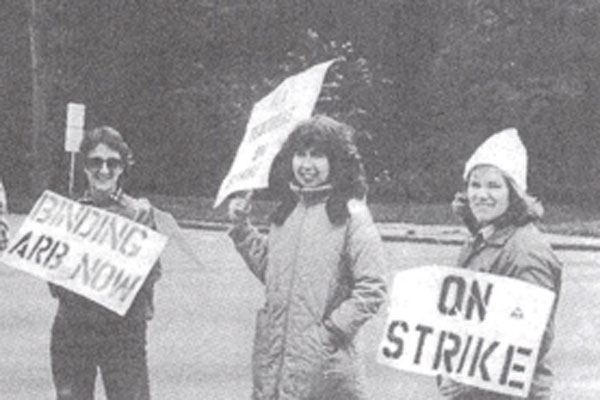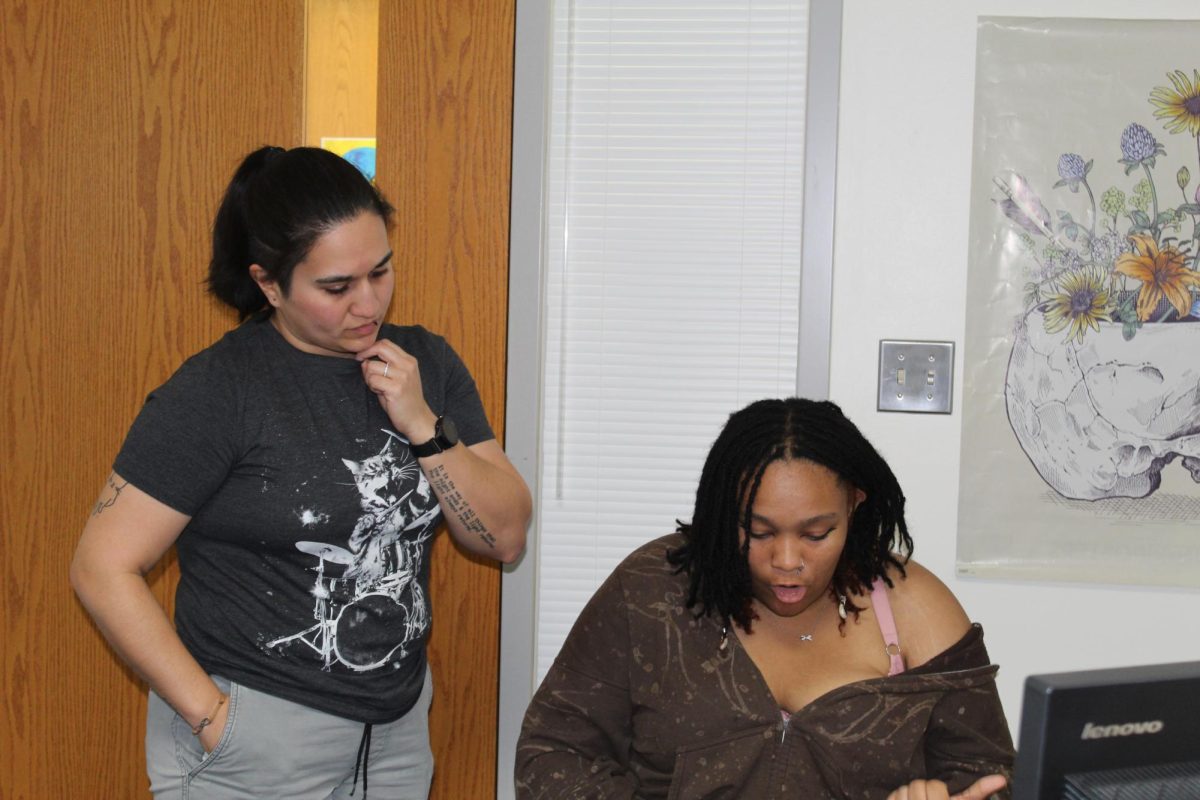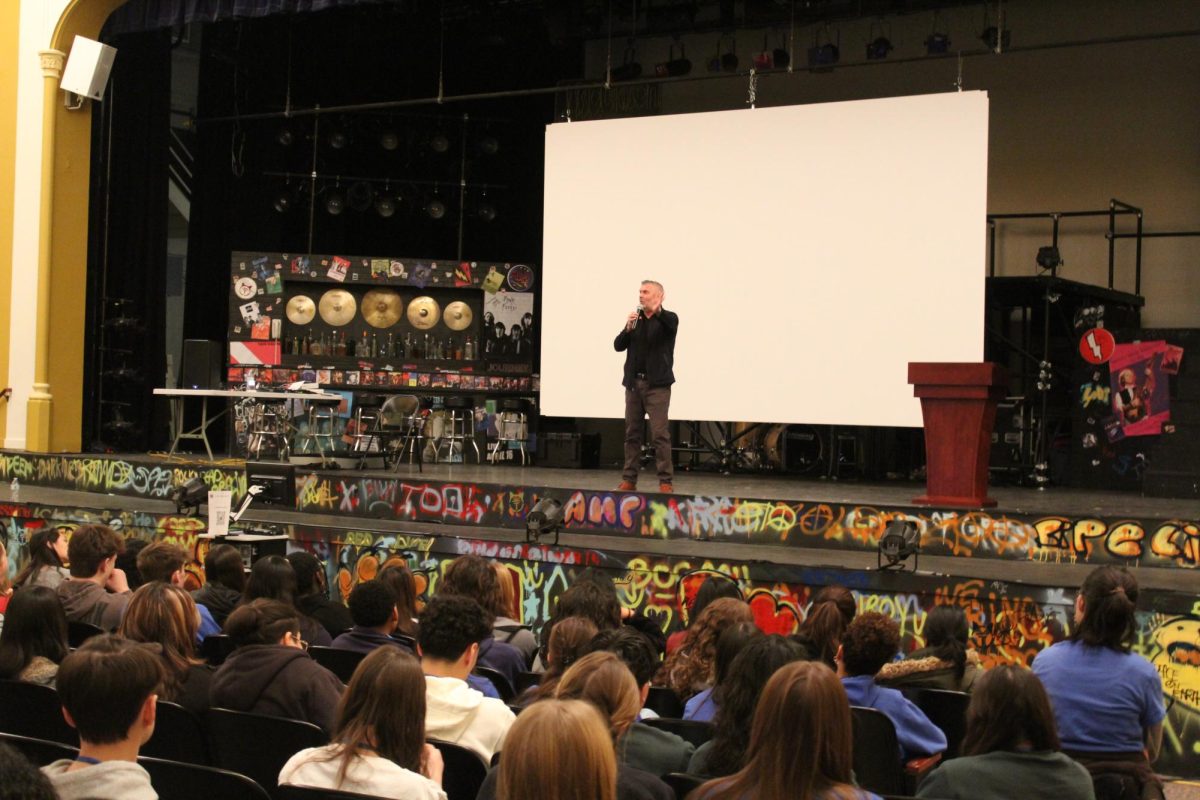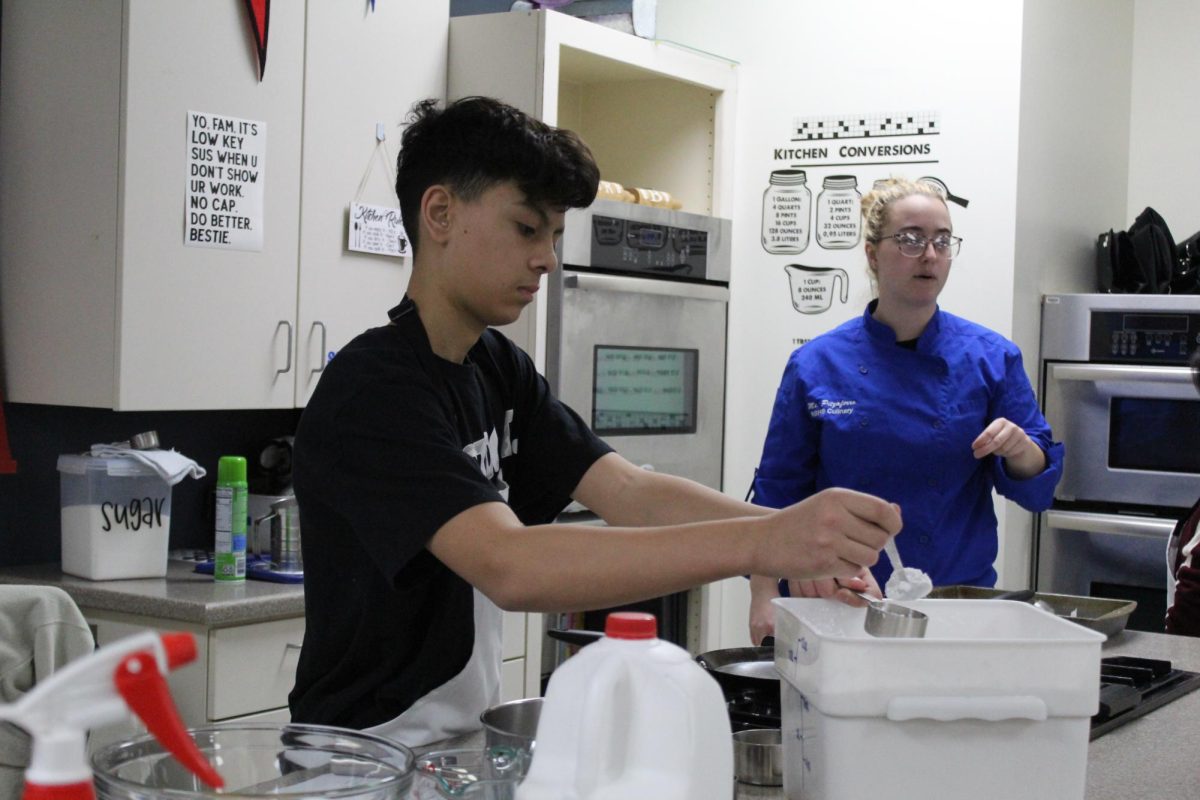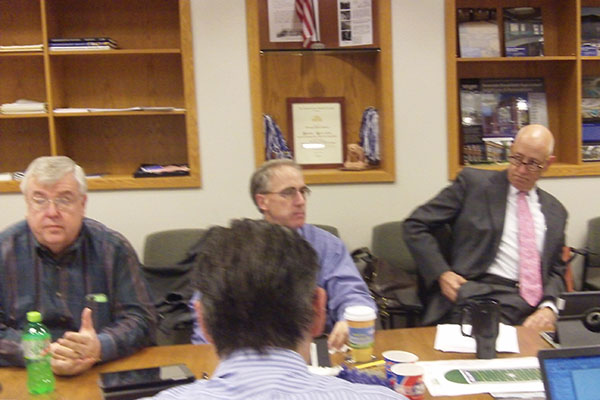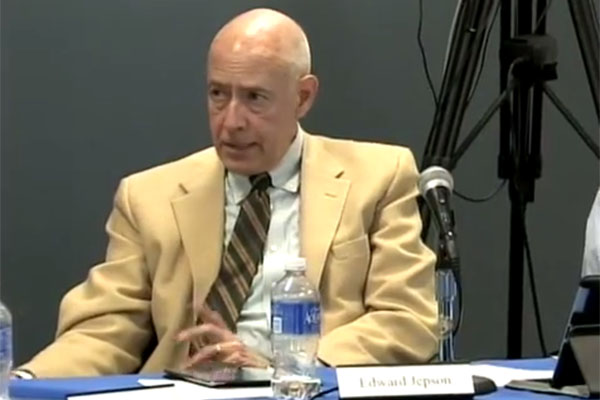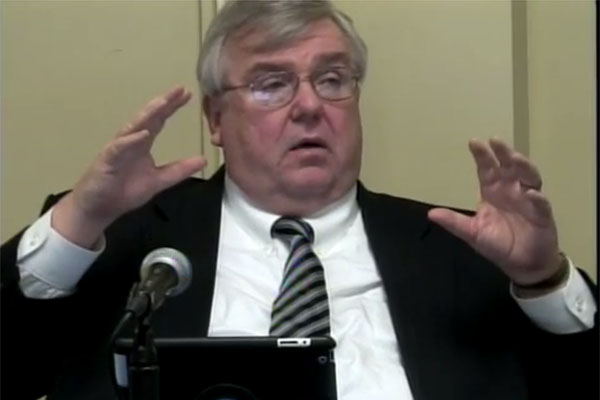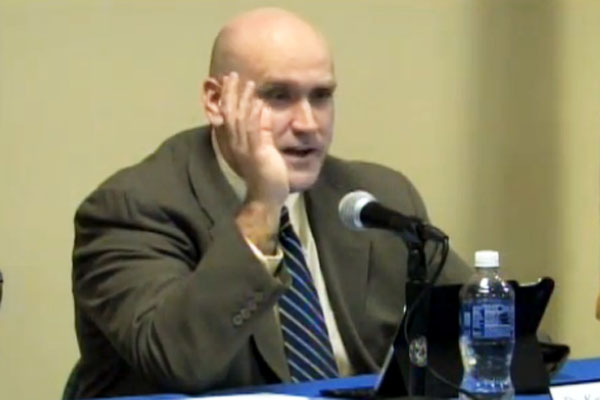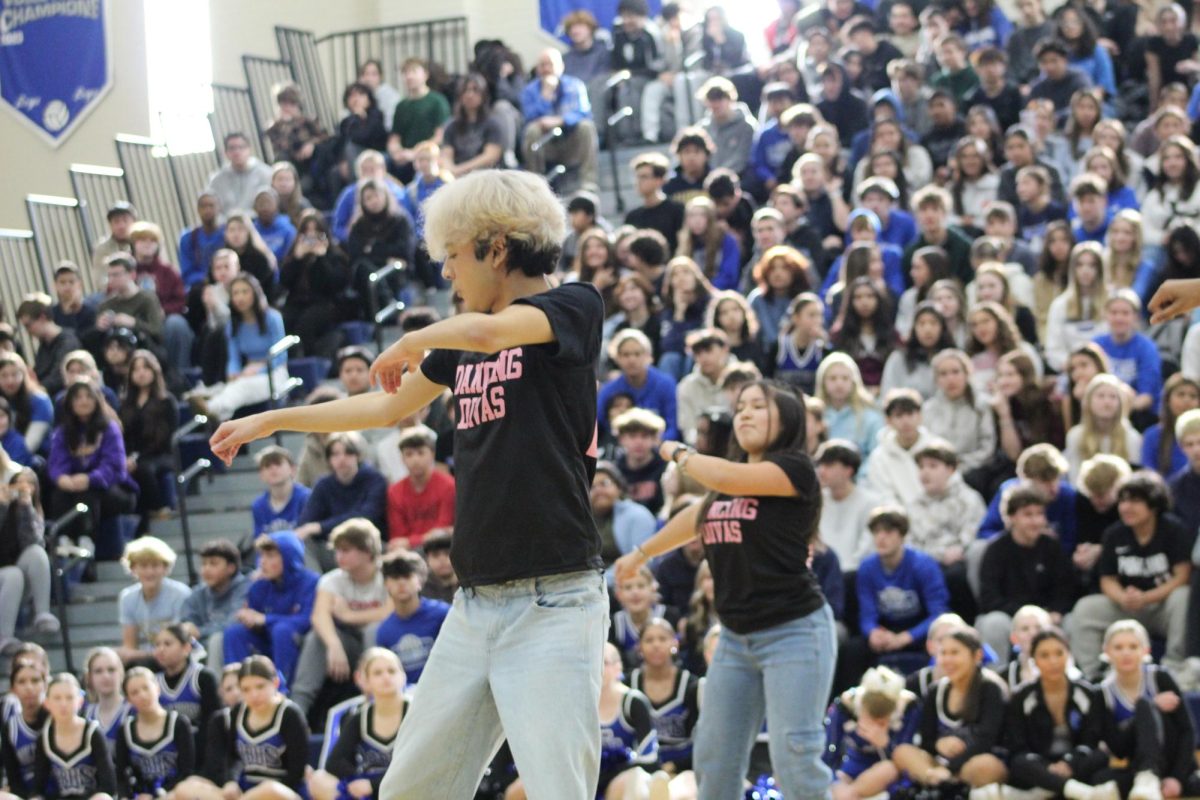As many may know by now, the Chicago Public School System has recently undergone an eight-day teacher’s strike. After a vote by their delegates, teachers just returned to classrooms on Wednesday. Central issues around the strike involved pay raises, the length of the school day, and a new teacher’s evaluation system that ties evaluations to student performance.
So, how does this affect the RBHS community?
The current contract between the RBEA (teachers union) and school board expires on June 30th of this school year. With renegotiation looming, there is a lingering question on whether or not a strike at RB could be possible.
Last Strike at RB Took Place in 1981
The last strike that took place at RB was in 1981 and lasted for 10 days.
Former RB Social Studies Department Chair Bill Jirkovsky, now retired, was in his eighth year as a Social Studies teacher at the time.
“I was nervous about the whole concept of possibly losing our jobs, but strongly supported the group effort,” he said.
As Jirkovsky remembers, the strike in 1981 started due to a breakdown in the relationship with the board.
“A lot of us went out on strike simply because of a feeling that we were not being treated with respect. I remember one of our negotiators was a well respected female teacher, who told of how disrespectful the teachers were being treated at the bargaining table. As she told the story to the teachers, she started to cry. I believe those tears cast the final vote for the strike,” he said.
When the strike ended, Jirkovsky remembered how it ultimately improved teacher-board relations.
“After the strike, I believe that both the teachers and the board decided to try to work together in a more amicable fashion,” he said, noting hopefully how those changes lasted. “It worked well for a number of years.”
The Negotiation Situation Now
Any current worries that RB teachers might go on strike surround the five-year contract that is expiring this year.
“The process is more than just negotiating pay. It is one out of three parts. Of the major parts there are Contract Language Rules, Insurance Benefits, and Pay,” said Union President Douglas Schultz.
Both the union and school administration expect that there will be a long negotiation due to the many variables that have taken place over the past few years, including fallout from the 2011 failed operating fund referendum. At the time of the referendum, the RBEA made an offer to the board to have a partial pay freeze if the referendum passed. When the referendum was overwhelmingly defeated, the RBEA withdrew the offer.
The Chicago teacher’s strike and how they choose to react to their contract negotiations will also play a part in determining negotiation outcomes here at RB.
“Chicago is a huge school system. Seeing how they respond to those changes will kind of set the tempo throughout the state and even the country,” said Superintendent Kevin Skinkis.
Does this mean that RB will follow suit with Chicago or do their negotiations a little less publicly?
“Whether or not the Board of Education or the Union decide to begin negotiations sooner or earlier is still to be determined,” said Skinkis.
Members of the RBEA and the board actually began some early negotiation efforts last year. After both sides cut off those talks, board member Tim Walsh made a statement at a public board meeting that teachers had requested more talks amongst the 14-member RBEA executive board and the 7-member school board. However, it was decided by a 5-2 vote from the school board to not go forward with these talks.
“Anytime you sit down and talk, it builds relations with other parties,” said Schultz.
At the most recent board meeting on September 11th, the board approved a tentative budget for 2012-13. That budget projected a end-of-year deficit of $278,000. Board member Dr. John Keen lays some of the responsibility for that deficit on the teachers.
At the meeting, Keen said, “I think almost all stakeholders in this institution gave something up except for one. If that group had contributed to this budget, we would actually have had a surplus. I think, looking forward, I really hope that all stakeholders will get on board to maintain our financial stability.”
Still, at this point, it does not look like formal negotiation talks will happen early.
“Talking earlier [now] is not in the best interest for the district and the union,” said Schultz.
Since the current contract expires on June 30th, 2012, negotiations must start a least 45 days prior to this date according to law. However, if an agreement towards a new contract cannot be made by the start of the 2013-2014 school year, teachers will follow the existing contract as long as good faith negotiations continue.
Given that the teachers and the union are not talking over their contracts until the later part of the year, RB students and parents do not need to worry about a strike at the moment. Even though the process seems it may take a while, no strike seems imminent. However, with Chicago having such a huge impact on smaller schools, there is no saying whether or not a strike is out of the picture or not in the future.

